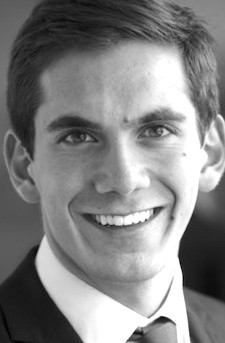The oligarchs
 Barely Legal •
Barely Legal •  Monday, November 11, 2019
Monday, November 11, 2019 Sydney Law School executive elections ... Hallowed ground ... Fat bank account ... Strange customs ... Perpetuation of the hierarchy ... The revolting masses ... Baby Liberal apparachic squeaks home against grandson of former High Court grandee ... Barely Legal reports from a shocked tally-room
 For many a ladder-climbing law student, a seat on the executive of a university law society confers a nonpareil mandate of legitimacy, power and popularity.
For many a ladder-climbing law student, a seat on the executive of a university law society confers a nonpareil mandate of legitimacy, power and popularity.
And why should it not? The strongest and most ruthless of the profession climb while others fall. Honing survival skills early, becoming accustomed to the Darwinian way of life, sharpening one's blade in student politics - that is what the person in the Clapham Omnibus would do.
"I'm an insider," these executives whisper quietly. "I hope you're being nice to me." Their clout, unspoken but certainly implied, hangs in the still air of tutorial rooms.
With the titles come an overdose of status - an insider pass to opportunities eternal - an upper-hand in attaining internships and society opportunities, access to executive-only bar tabs, an office in the law school and exclusive swipe access to otherwise closed off rooms for study, sex and scandal. The lot.
But the road to this executive status is through the trenches and far less glamorous, as a grandson of former High Court Justice Michael McHugh discovered last month.
Lurid colours, forgettable names, panem et circenses. Two rival rickets: "Zest" and "Pop" emerged as the dramatis personae of this year's University of Sydney Law School election saga.
Elections have come few and far between for SULS. There have only been three in the last seven years. Now, law students have returned to the ballot box to vote in a new executive.
Voting is not compulsory and if historical turnout remained consistent, only one of every ten law students would care enough to cast a ballot.
For the last two years, the society executive has been elected unopposed. Society rules have meant that if only one person nominated for president, they would be "elected" to that role by default.
Along with that crown, they would have free rein to select an executive from a field of applicants. In this endeavour, they had absolute discretion over which applicants they wanted, what criteria they used to assess them, and who they ultimately tapped to join the executive.
 Nasr: Upper House apparatchikSlowly, inevitably, a perception formed that these rules allowed a president to handpick friends or broker deals behind the scenes. The ordinary student was locked out, the masses sounded the alarm, and students took to social media. The "system is broken," said student newspaper Honi Soit at the time.
Nasr: Upper House apparatchikSlowly, inevitably, a perception formed that these rules allowed a president to handpick friends or broker deals behind the scenes. The ordinary student was locked out, the masses sounded the alarm, and students took to social media. The "system is broken," said student newspaper Honi Soit at the time.
Rumours circulated this year that the outgoing executive would take inspiration from American foreign policy. It would seek to manufacture an election.
In one corner - "Pop," the newcomers on the block, led by Amer Nasr, a first year Juris Doctor student. He had parachuted into Sydney after an economics degree at New York University's campus in Abu Dhabi.
He also held a role that few knew about. It had been removed from his LinkedIn profile before his candidacy was announced.
Nasr was an assistant advisor for The Hon John Ajaka (Lib), the president of the New South Wales Legislative Council. He was a member of that well-known class of baby political apparatchiks.
His contender was "Zest," a collection of mostly existing SULS executives led by former Grammar boy, Isaac Morgan - the well-credentialed grandson of former High Court Justice Michael McHugh.
Morgan had headed up the SULS sports department in 2017 as one of the candidates handpicked by the then president. Since 2013, he had been a reliable presence on Phillip Street with stints as a junior clerk at numerous barristers' chambers dominated his resume.
Taking the helm of SULS promised a role in governing a charity with more than $300,000 in the bank. Of which, close to $120,000 came from the top end of town - 20 law firms and heavyweight consultants, Bain and BCG.
 Morgan: pipped by a PopNasr and Morgan trod in hallowed footsteps. Former presidents, like Michael Kirby, had gone on to illustrious futures. To wear the crown surely was a guarantee of career and academic success.
Morgan: pipped by a PopNasr and Morgan trod in hallowed footsteps. Former presidents, like Michael Kirby, had gone on to illustrious futures. To wear the crown surely was a guarantee of career and academic success.
Morgan's hopes were dashed. His ticket swept-up support from numerous past members of the SULS executive but it was not enough.
Nasr's "Pop" ran a strong multimedia campaign, calling for an end to the "clique".
In the end, Zest was surpassed by a squeeze. Morgan collected around 45 percent of the vote. Like his grandfather who famously tried insurance and labour work before taking up law, Morgan's brief flirtation with student politics may well be the inspiration he needs to retreat to what his family does best.










Reader Comments